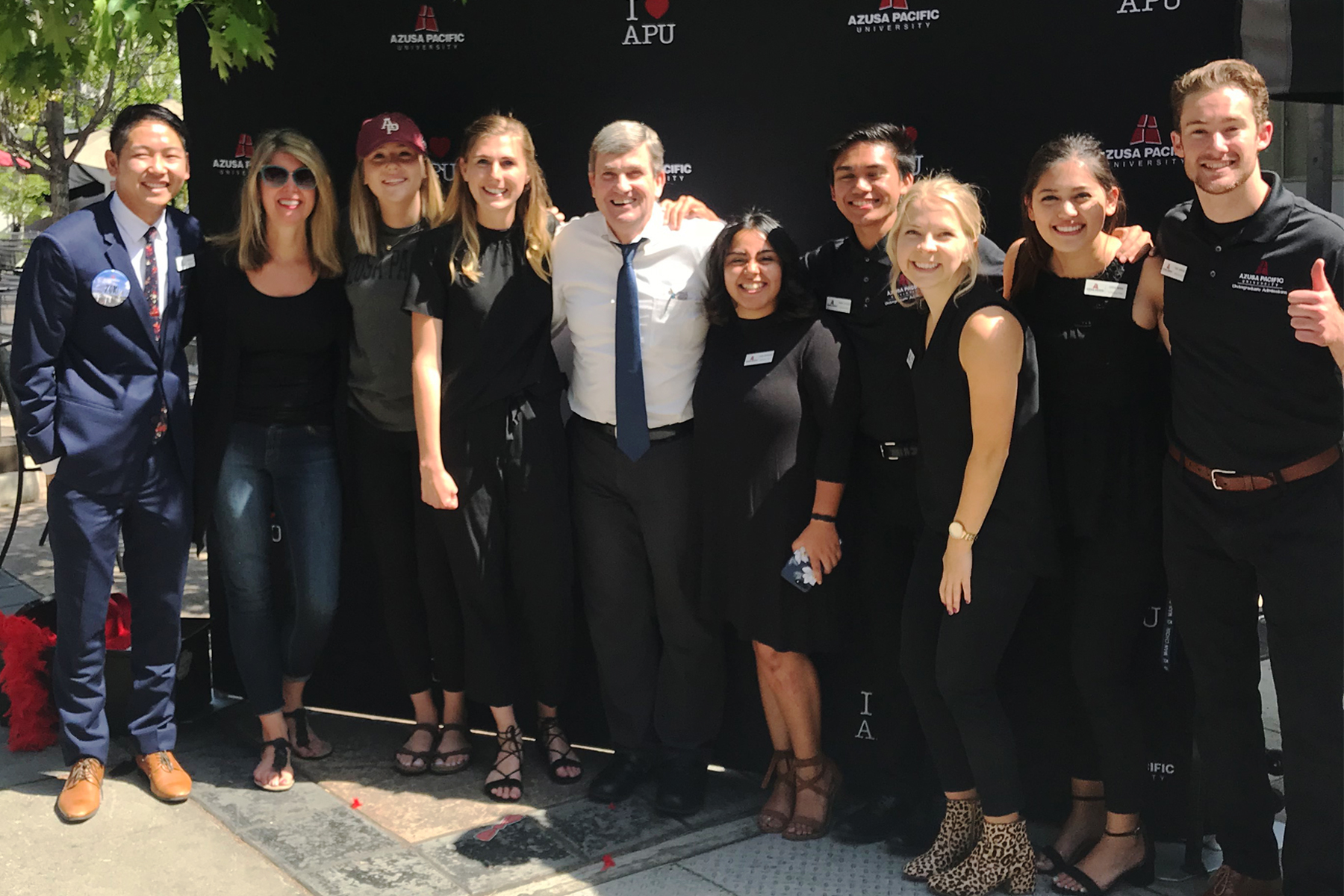Principled Decision Maker

PRINCIPLED DECISION MAKER
Looking to the left and right often leads to comparison and a lack of authenticity in leadership, affecting their commitment to being principled decision-makers. Leaders who are principled decision-makers align their personal and organizational values with high ethical standards that model and maintain values of candor, openness, and inclusiveness amidst internal and external pressures. They can identify and solve problems through collaboration and shared responsibility with team members involved in critical deliberations and decisions. These leaders have ownership over their responsibilities through effective organization, prioritization, and ethical accountability to act in decisive, urgent, and committed ways to achieve results. Principled decision-makers integrate their vocational values with high standards of ethics for systematic and intuitive excellence in their leadership.
At the core of principled decision-making is the understanding of ethical decision-making and unwavering cornerstones of Christian leadership that leads to greater ownership and accountability. Leadership becomes an outward expression of a person’s love for God while wholeness is loving God and seeing that expression become an outward reality. Aligning a person’s spirit, heart, will, mind, body, soul, feelings, thoughts, and interactions under a unified philosophy of wholeness is expressed through practical outward responses. Servant leaders craft and embody their art of service as a direct and indirect ethical activity, “a reply to a moral call within, one that answers a moral need in the world” (as cited in Keith, 2012, p. 4). As a leader, my heart is to be a person of authentic character who intentionally builds trust through encouragement and humility with patience in receiving power as a gift that can be freely entrusted to others.
With a posture of service, principled decision making within a profession consists of knowledge, dedication, ethics, and intention where the commitment to quality and integrity is held with honor that is advanced through research writing, and teaching (Netwon, 2016). Amidst difficult decisions when ethical values are established, thinking fast and slowly becomes a balance in the correctness of thoughts and actions needing support through guided frameworks (Kahneman, 2011, p. 416). To evaluate the current strategies and challenges, Newton’s (2013) DISORDER decision procedure for ethical dilemmas will inform the rationale for a potential change. The DISORDER procedure consists of the definition of the dilemma, inquiry to obtain all necessary information, sorting out the stakeholders, options and outcomes, rights and rules, determination and decision, evaluation of effects, and review and reconsider (Newton, 2013). On the other hand, through Newton’s (2013), ethical framework, ADAPT, future strategies can be evaluated for the next cycle through moral reasoning. The ADAPT procedure consists of captured Attention, Dialogue conducted, incorporated moral Assumptions, Proposals for action, and results of the action are tested again for expected results (Newton, 2013, p. 8). As a result, Newton’s (2013) ethical decision-making process DISORDER evaluates the current strategies and challenges while options and outcomes are organized through ADAPT, which evaluates strategies moving forward. As a result, principle decision makers are able to collaboratively engage in identifying and solving problems with a shared responsibility to critical deliberations and decisions.
Finally, when organizations and leaders within them discover and align their True North as their orienting point in a spinning world, their deeply held beliefs, values, and principles become their internal compass (George, 2015, p. 1). These leaders’ ownership increases their prioritization and organization as they become unwavering in their decision-making that is backed by ethical accountability. Their high standards of moral and ethical conduct are reliable in doing what is right in the moment of urgency and commitment. Standing against unethical behavior requires integrity that is honest, compassionate, and generous because they are right in themselves and honor the will of God and his design for human life (Keller, 2012). Principled decision-makers relentlessly approach ethical dilemmas with integrity and authenticity through an ADAPT or DISORDER process that aligns with their core values and True North.

In every sphere of society, ethical decision-making surrounds and creates the culture of organizations, which calls upon principled decision-makers for engagement, ownership, prioritization, accountability, and commitment to the process. As a part of the class, Ethical Decision Making (LDRS 563), I wrote a literature review and explored the process of ethical decision-making in the admissions profession, and analyzed it to better understand the moral dynamics throughout the college admissions process. Through the history and commitment to the National Association of College Admissions Counselors (NACAC) core values, there has been an increase in admissions professionalization in higher education built through trusted relational connections, informed by moral judgment and empowered by the moral cultivation of ethical decision making. Overall, the role of an admissions professional is critical to both students and institutions, and NACAC provides the critical space for them to “band together, learn from one another, and promote the vital role of the admissions profession” (Norris, 2005, p. 12). Through that comradery, servant leadership is given the authority to see transactional interactions transform into relational partnerships. As a result, history is being made as moral cultivation promotes ethical decision-making in college admissions.
While reflecting on my role as a principled decision-maker as an admissions counselor, I remember getting a phone call from a student that I remember being excited about being admitted into her dream school. Inspired by an alumnus to apply to Azusa Pacific, she was now incredibly hopeful for a fresh start until I met her in tears for the first time in person at a financial aid presentation. Burdened by the heaviness of a series of past events, she was needing to pay for college all on her own. With her parents recently divorced, her primary guardian abandoning her and her sister, and with only a car and essential belongings, she was now homeless moving from house to house with bills and responsibilities that no teenager should ever carry. After taking multiple buses to a financial aid presentation, her dreams were crushed by the gravity of the financial cost of attending where she saw as the destination of her new beginning. Amidst the tears, challenges, and pain, as a principle decision-maker, I observed the ethical systems of the financial aid process. Through several conversations, decisions were made that changed her entire financial aid package. As a result, she received a very generous music scholarship, full access to need-based aid, and eventually gained an additional nine thousand dollars in the form of state need-based aid. Then sitting at a gas station, lost and hopeless, I gave her a call to tell her that her dream was going to become a reality, and months later, at our new student orientation, I was able to say the words, “Welcome Home!” Now, she is at home with dear friends who have become family, and as the only sophomore residence advisor, she has been able to lead authentically and love fully in her new home. However, without principled decision-makers who integrate their vocational values with high standards of ethics for systematic and intuitive excellence in their leadership, the organization can get lost in the transaction, forgetting about the relationships that can lead to life transformation.
Through the Masters in Leadership program, I have the responsibility and opportunity to sharpen and align my values with various decisions as a principled decision-maker. As a leader, I have ownership of my responsibilities through effective organization, prioritization, and ethical accountability amidst decisive, urgent, and committed needs for high achievement. As I continue to develop as a leader, one of my goals is to be committed to writing down challenges and areas of recent vulnerability as a starting point to running through the process of ADAPT and DISORDER every month for greater ethical self-awareness. Also, as a coach, it is important to prioritize creating and reevaluating a coaching contract for the Isozaki Coaching Company by 2019 before launching organizational and personal coaching sessions. Overall, principled decision-makers effectively integrate vocational values with high ethical standards that articulate their excellence and professionalism as leaders in a changing world.
References
George, B. (2015). Discover your true north: Becoming an authentic leader (Expanded And Updated ed.). Hoboken, New Jersey: John Wiley & Sons, Inc.
Kahneman, D. (2011). Thinking fast and slow. New York: Farrar, Straus and Giroux.
Keith, K. M. (2012). The case for servant leadership. Honolulu, Hawaii: Terrace Press.
Keller, Timothy. (2012). Every good endeavor: Connecting your work to God’s work. (Kindle Edition). Retrieved from Amazon.com
Newton, L. (2013). Ethical decision making: Introduction to cases and concepts in ethics. New York, NY: Springer Publishing.
Norris, J. M. (2005). Pawns or professionals: The 21st century sdmission counselor. Journal of College Admission(189), 9-13.